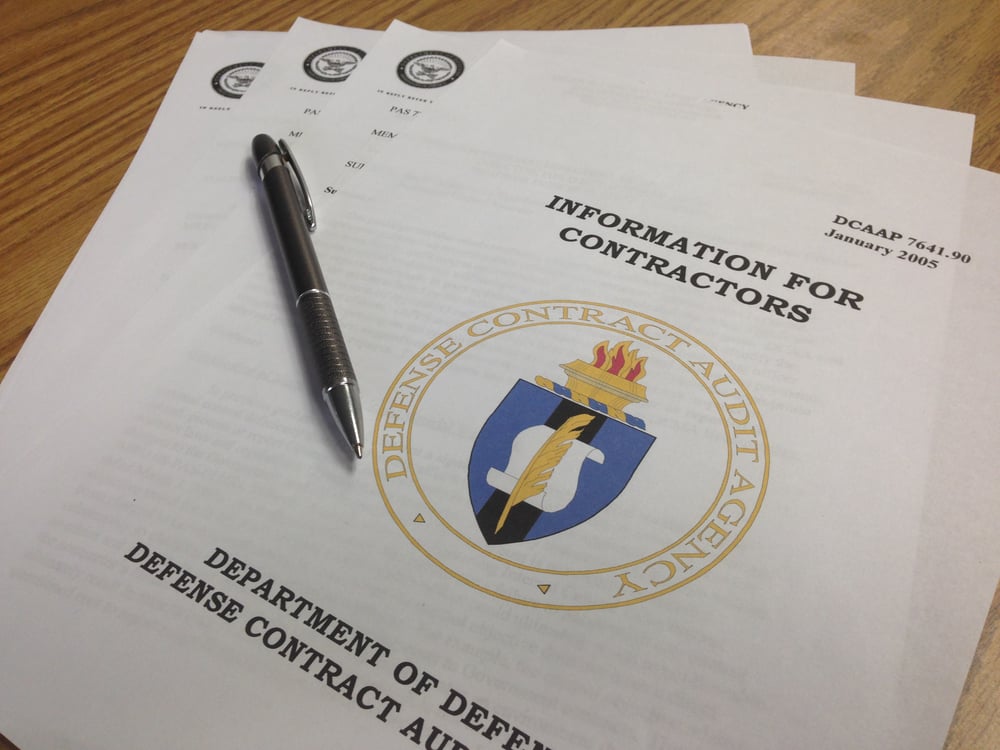
What does it mean when someone says "I've had a DCAA Audit"?
Many times when I talk with prospective clients I ask them if they have a DCAA compliant accounting system. Many times they say "I have a compliant accounting system because I've had a DCAA audit". Well, what exactly does that mean? I think it turns out that many people don't really understand the Defense Contract Audit Agency and therefore don't really understand what has been audited. Of course, the other misconception is that once the DCAA audits your accounting system that they approve the accounting system. That is not true. An audit verifies that the concepts and records that were tested were found in compliance but they do not give a certification to a software or to a system as a result of an audit. As a matter of fact, many times people will say "approved by" the DCAA and that is also an incorrect statement. I want to quickly examine here the different types of audits performed by the DCAA and what that means.
First, you must understand that the DCAA lists 67 different audit programs on their website. All of these audit programs are then grouped into 4 major groups for reporting to congress. These four groups are:
| Number of Audits in FY2019 | $ Returned to Gov't | |
| Forward Pricing Audits | 710 | $2,664,558,000 |
| Incurred Cost Audits | 1,117 | $736,485,000 |
| Special Audits | 822 | $240,535,000 |
| Other Audits | 299 | $84,359,000 |
As you can see, there is a substantial amount of cost that is found in these audits that the DCAA actually saves the taxpayer. They more or less justify their jobs by saving the government money. When you look at the total DCAA cost to perform these audits compared to the total savings, they return an average of $5.50 to the Federal Coffers for every $1 invested in the audit process. It becomes easy to see the value Congress sees in this organization and why they exist. Let's look a little deeper into the different types of audits and a little bit about what they mean.
Forward Pricing Audits
These audits are normally performed prior to contract award and they are meant to justify the pricing levels on the proposed award. This is the Defense Department's way of verifying fair and reasonable prices on products and services, many times that are not in the commercial marketplace and therefore market pricing is not readily available. These audits can include proposal audits, forward pricing rates audits and high-risk estimating system audits. These audits normally do not address the compliance of the contractor's accounting system.
Incurred Cost Audits
These audits focus on cost reimbursable and other flexibly priced contracts. The incurred cost submission (many times referred to as the ICE or Incurred Cost Electronic submission) is required annually and the DCAA audits these reports to verify the Government is only paying for actual costs and not being overcharged. This is performed prior to contract closeout so that the Government can make corrections if the contractor had lower costs than what were charged to the Government.
Special Audits
These audits are normally requested by the Contracting Officer after the issuance of a contract. Typically they are in response to a contract change or termination where accurate evaluations of costs incurred prior to the change or termination must be verified. Again, they are looking at costs submitted and not necessarily looking at the accounting system although a compliant accounting system is usually required to put these costs into the format the Government understands.
Other Audits
These audits are again normally at the request of the Contracting Officer. This is usually in response to what the Contracting Officer views as a high risk to the government. Certainly a new contractor that has not done business with the Government before would potentially be a risk as to their accounting system (an unknown to the Government at this point) and the CO could request an audit of the system. These are normally the audits that look at a contractor's accounting system adequacy. The most common two audits that review and accounting system are the Pre-Award Audit and the Accounting System Audit.
The bottom line on this is that just because you may have had a DCAA audit, it doesn't necessarily mean you have a DCAA compliant accounting system in your organization. If you have had an Accounting System Audit, then you can feel assured that your accounting system has been evaluated for compliance to DCAA requirements. In a future blog we may look at a few of the audits in more detail to distinguish what the DCAA is looking for in each of those audits.